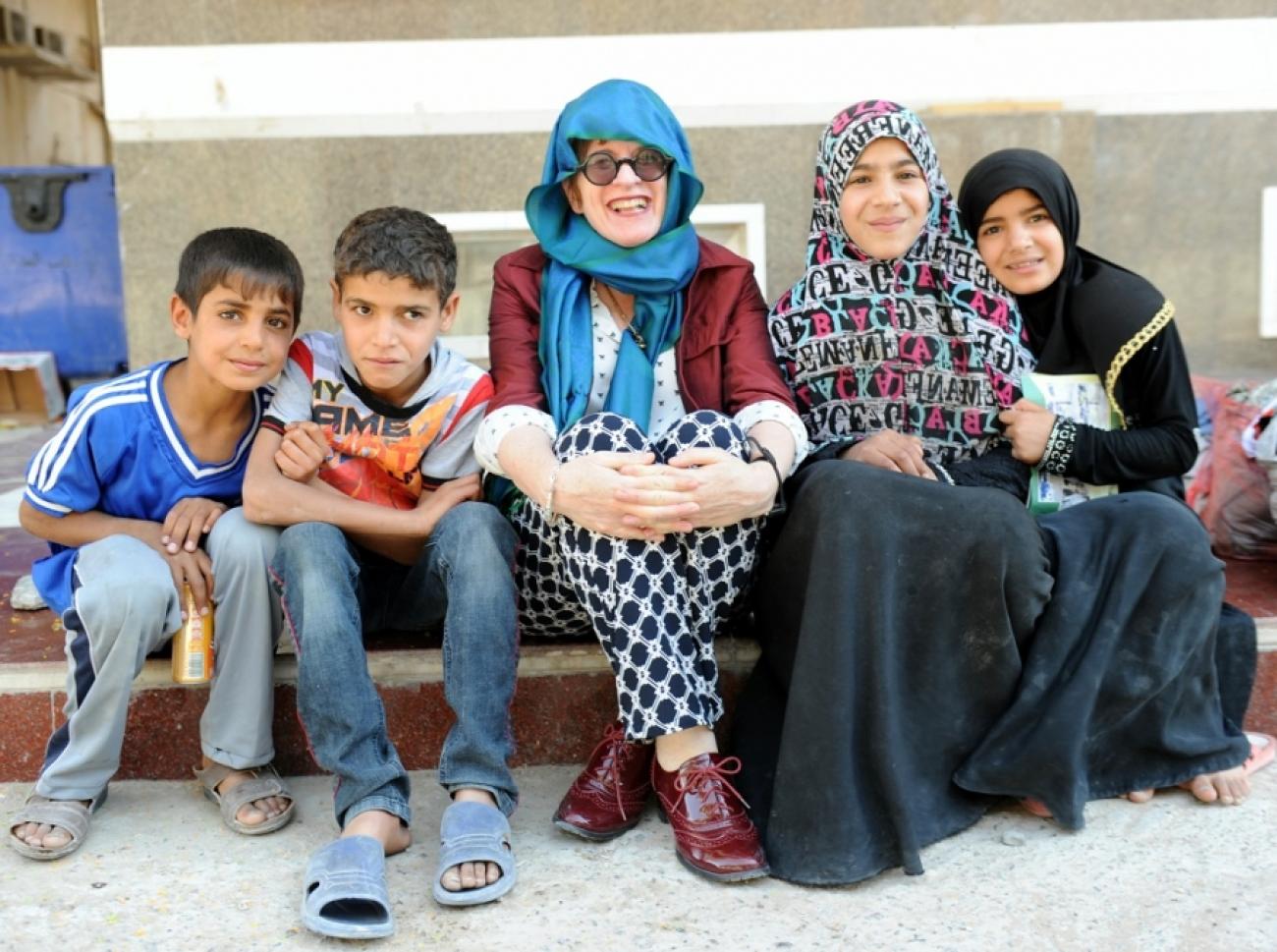DHC Gilmore Visits Najaf, Meets Leaders, Attends Workshop

Continuing her official visit to Iraq, the United Nations Deputy High Commissioner for Human Rights, Ms. Kate Gilmore, travelled on Tuesday to Najaf
Continuing her official visit to Iraq, the United Nations Deputy High Commissioner for Human Rights, Ms. Kate Gilmore, travelled on Tuesday 19 April 2016 to Najaf, where she met with senior religious figures, civic leaders, and civil society organisations.
Ms. Gilmore was honoured to be received by His Eminence Grand Ayatollah Sayid Mohamed Sa’eed al-Hakim. Ms. Gilmore learned of a saying of the Imam Ali, that "All human beings are born as brothers in religion or brothers in humanity” which serves as the basis for ensuring respect, equality and justice among all people irrespective of their differences. His Eminence stated that despite the suffering of the people of Iraq from decades of human rights violations inflicted by the former regime of Saddam Hussein, through years of terrorism, and at the present time from ISIL, the principles of Islam and Imam Ali, of tolerance, compassion, forgiveness and justice, continued to be applied in practice. He noted that hundreds of thousands of men women and children from different religious and ethnic backgrounds had sought refuge in Najaf from the crimes inflicted on them by the Daesh (ISIL), and that the people of Najaf had provided them protection and assistance without distinction and irrespective of their backgrounds. His Eminence called on the United Nations to ensure that more is done to ensure the care and protection for IDPs, and that human rights violations in Iraq are properly and fairly documented in order to ensure accountability of the perpetrators and justice for the victims. He also urged the Office of the High Commissioner to continue its work with all levels of society to promote the respect and protection of human rights.
The Governor of Najaf welcomed the activities that the UNAMI Human Rights Office (HRO) /OHCHR are conducting in the Governorate. He noted that there was a real need for capacity building of civic officials and civil society on human rights issues, particularly documentation of human rights violations. He stated that the governorate has a strong rule of law environment, but among the primary concerns are the ongoing humanitarian needs of the 150,000 IDPs who have sought refuge in Najaf. He noted that the government and people of Najaf had supported the IDPs largely relying on their own resources, and urged the United Nations to increase its assistance to support the efforts of the local community. He urged the Office of the High Commissioner for Human Rights (OHCHR) to consider opening an office in Najaf to further strengthen the partnership with the Government and people of Najaf in order to more effectively ensure greater awareness and action on human rights issues throughout the governorate and the region.
The Deputy High Commissioner also attended the the closing session of a three-day training provided by UNAMI HRO/OHCHR for civil society organisations. Attending the training were 32 members of 19 human rights organisations operating in Najaf and southern central governorates of Iraq. Issues included documenting and reporting on human rights violations, international human rights mechanisms, and activities that can be conducted to promote the respect and protection of human rights. In an interactive session with the Deputy High Commissioner, the participants raised a number of human rights issues of concern, including the protection of women from sexual and gender based violence, the need for more training and awareness raising of civil society on human rights issues, and the plight of IDPs and concerns about their access to basic services. Participants called on OHCHR to consider opening a permanent office in Najaf so as to conduct more activities in the south central region of Iraq. At the close of the training, Ms. Gilmore awarded certificates to each of the participants.
At the conclusion of her visit to Najaf, the Deputy High Commissioner was privileged to visit the Shrine of Imam Ali. Ms. Gilmore observed that Najaf has always been a centre of tolerance, respect for the rule of law, and protection for the vulnerable. “Compassion for the suffering of others, the protection of those who are vulnerable or marginalised, such as widows, children and people with disabilities, and respect for justice and the rule of law, are qualities practiced by Imam Ali himself – and I see that these qualities are still being practised by the religious authorities, civic officials, and civil society in Najaf today. These values are also at the core of human rights and as such they serve as an example not only for the rest of Iraq, but for all people everywhere,” Ms. Gilmore stated. “I was also heartened to see that civil society is flourishing in Najaf. Civil society are like green shoots in the desert of suffering that has afflicted all Iraqis. And in them lies the seeds of a future Iraq built on peace, tolerance and justice.”

